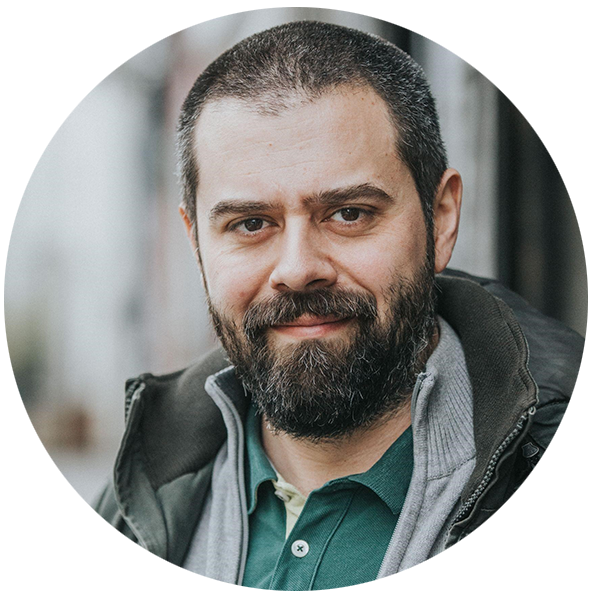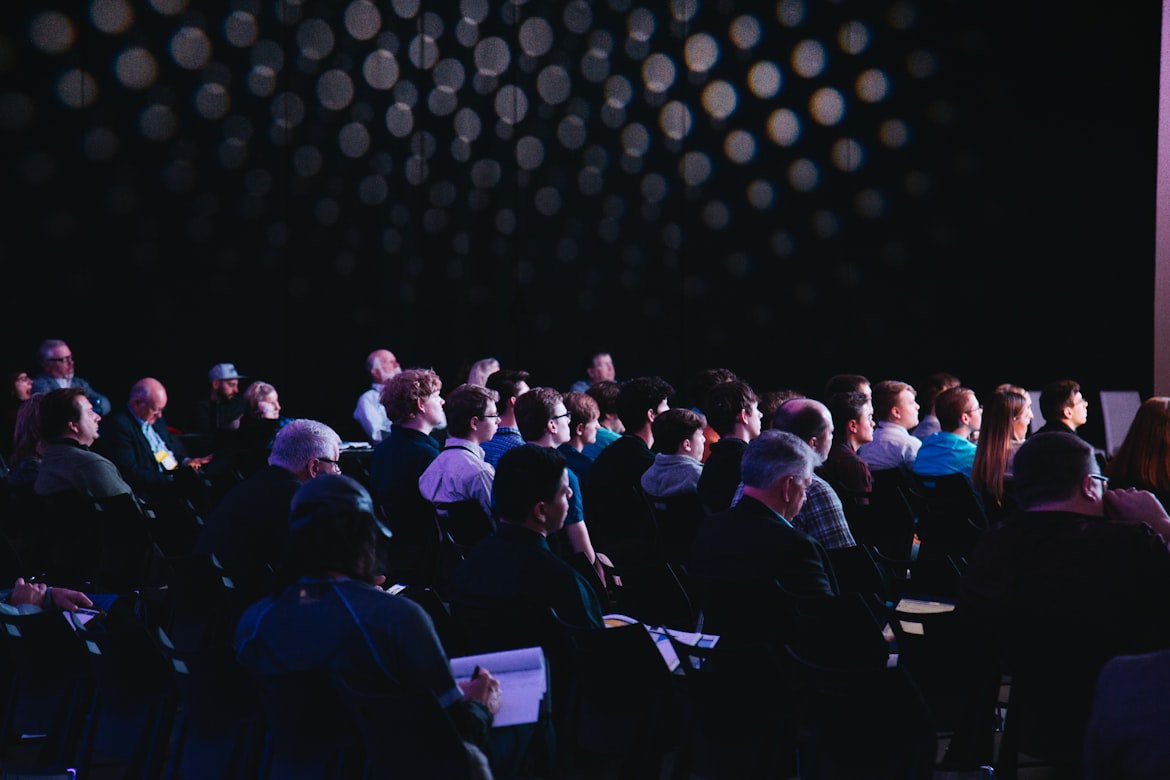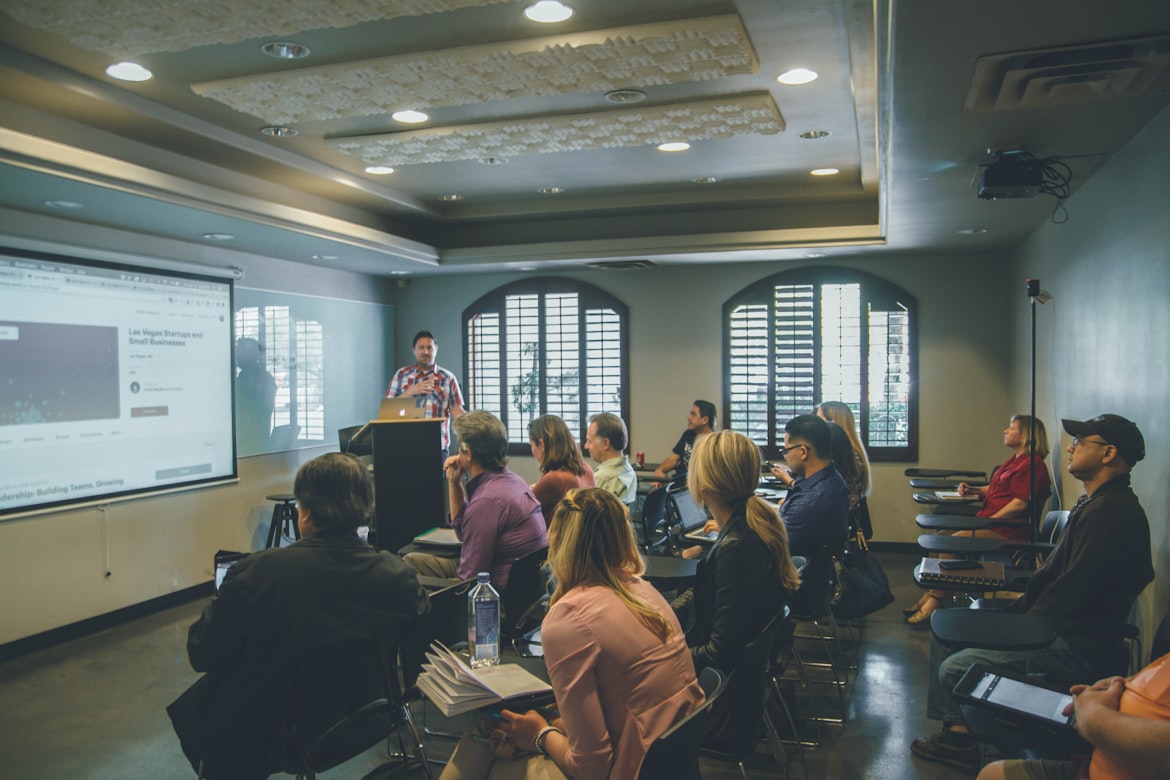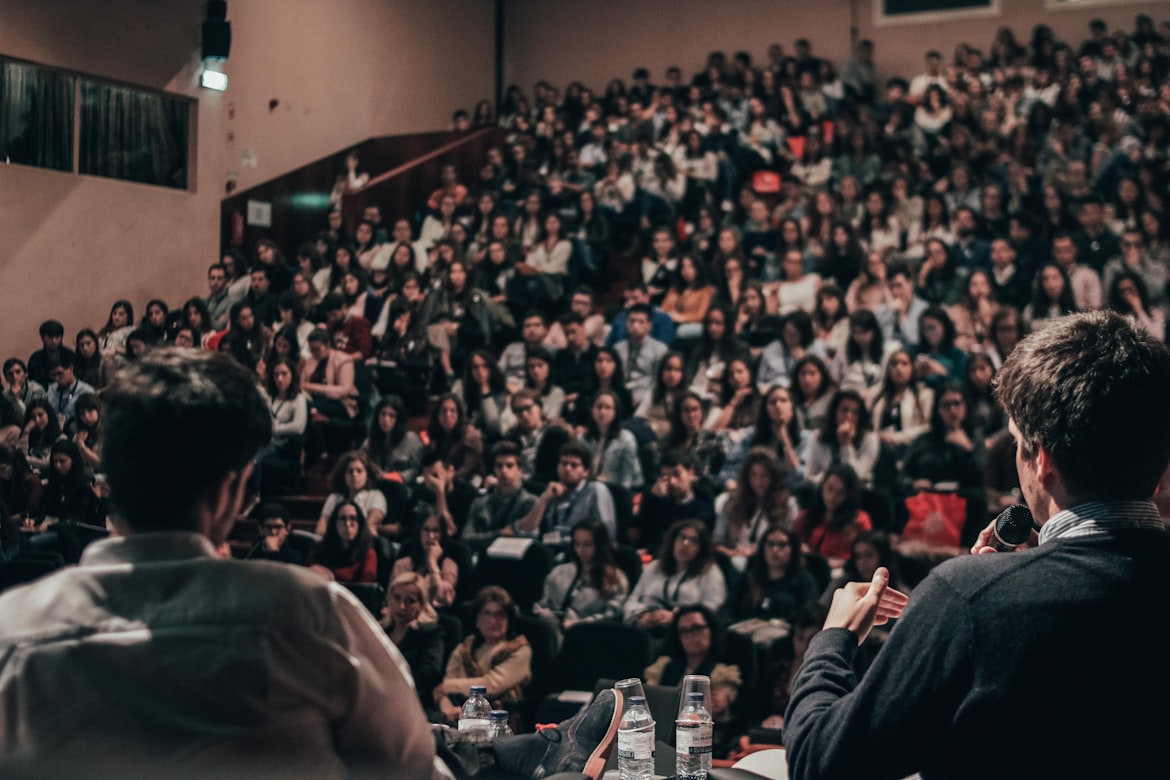Conference programme
Invited lectures

Prof. Dr. David Funder
University of California, Riverside, Graduate Division
Doing Psychological Research Around the World: Opportunities, Obstacles, and Surprises
The International Situations Project (ISP) has gathered data from more than 17000 individuals in 62 countries, using 40 languages, in collaboration with an international team of more than 100 psychologists. I will summarize some substantive findings from the project, and describe opportunities for more research of this kind, facilitated by the internet and, more importantly, the eagerness of psychologists around the world to participate. Obstacles also abound, including funding policies that discourage international collaboration, and the insistence of editors, reviewers, and grant panels on methodological criteria that are seldom applied to studies done only within a single country. Finally, I will present two overall conclusions which surprised me. First, the concept of ethnicity, treated as a reified categorization in the US, is actually a fluid social construction with widely different meanings in different countries. Second, people around the world are much less different from each other than was long presumed.David Funder is Distinguished Professor of the Graduate Division at the University of California, Riverside. He received his BA degree from the University of California, Berkely and his PhD from Stanford University, and he served on the faculties of Harvey Mudd College, Harvard University, and the University of Illinois at Urbana-Champaign before coming to Riverside. His research has focused on personality assessment, the accuracy in personality judgment and, more recently, the assessment of situational experience around the world. Past President of the Society for Personality and Social Psychology (SPSP) and the Association for Research in Personality (ARP), and recipient of SPSP’s Jack Block Award for Personality Psychology, he is author of the textbook The Personality Puzzle (W. W. Norton). He has been married for more than 40 years and has two daughters.

Prof. Dr. Chris Fullwood
Birmingham City University
Virtual Cosplay: Exploring the Many Faces of Technology-mediated Self-presentation
Alongside the rapid advancement of new and emerging digital technologies, such as the Internet and Virtual Reality, unprecedented opportunities for self-exploration and flexible identity construction have arisen. While for most users this might simply extend to curating a more polished online persona, e.g., via their social media platforms, there is nonetheless the potential to live out an entirely different virtual existence if one wishes to, which would be unconstrained by one’s offline self-image. Underpinned by Goffman’s (1956) notion of the performed self, Leary and Kowalski’s (1990) two component model of impression management and Walther’s (2007) hyperpersonal theory of computer-mediated communication, this keynote talk will begin by outlining and evaluating the key affordances associated with more flexible online self-presentation, in particular anonymity, editability and asynchronicity. Following on from this, the talk will consider how the online platform itself, as well as the reasons why someone might choose to use it, can affect self- presentation behaviour. For instance, some online spaces will provide affordances to users which others do not, and some platforms (e.g., online dating) may be associated with increased self- presentation motivation due to the goal relevance of impressions. Acknowledging that the self is multifaceted, entering different areas of the online world will also affect the likelihood that a particular identity will become active. In some instances, this may be an identity which is dormant or hidden in one’s offline life, meaning that the Internet allows individuals to explore possible selves. Recognising that not every person who enters cyberspace will take up opportunities to experiment with self-presentation, the talk will then focus on the various personality traits associated with more idealised and diverse forms of online self-presentation, including self-concept clarity, social anxiety, self-esteem, and self-monitoring. More specifically, I will discuss findings from three independent studies using the Presentation of Online Self Scale (POSS), a new scale we created to measure various diverse forms of online self-presentation behaviour. The talk will then reflect on how more flexible self-presentation might impact the impressions of others, as well as how we might evaluate ourselves. For example, does communicating in cyberspace affect the ease with which we might accurately judge the dispositions and personalities of others? Does presenting a more idealised image online change our view of ourselves? Finally, the talk will focus on the current state of play in online self-presentation research to identify future research pathways.Dr Chris Fullwood is a chartered cyberpsychologist and associate fellow with the British Psychological Society (BPS) and works as a cyberpsychology researcher and senior lecturer in the school of psychology at Birmingham City University. Dr Fullwood’s expertise sits principally within the field of Cyberpsychology, though he also teaches Social and Forensic Psychology, as well as online research methods and ethics. He is perhaps most well-known for his research focusing on the ways in which presenting the self via different forms of new and emerging technology affects how we manage the impressions of others. His research has also focused on digital exclusion and inequalities for people with learning disabilities and the use of digital tools for improving psychological health. Dr Fullwood is one of the founding members of the BPS’s Cyberpsychology section and helped to compile their recent Internet Mediated Research guidelines. During his 21-year academic career, his work has generated more than 50 publications, including co-editor for the Oxford Handbook of Cyberpsychology in 2019. The applied nature of his research has created impact through consultation with numerous organisations, including NATO, Studio Lambert (TV production company) and the UK Government.
https://www.bcu.ac.uk/social-sciences/about-us/staff/psychology/chris-fullwood

Prof. Dr. Jessica de Bloom
University of Groningen, Department for Human Resource Management and Organizational Behavior
Time is Honey: Insights on Recovery During Challenging Times
Occupational health psychologist Dr. Jessica de Bloom will provide an overview of her research on the importance and the effects of recovery episodes – from micro breaks to vacations. She will zoom in on the basic conditions and key mechanisms that assist recovery from demanding working life and explain how work environments can support recovery processes to enable sustainable working lives. Whilst researchers have started to investigate recovery as a naturally occurring phenomenon, de Bloom has gradually moved to viewing it as a process that workers can proactively shape. Her identity-based integrative needs model of crafting suggests that workers engage in so called crafting efforts to satisfy psychological needs, both at work and during leisure time. Finally, de Bloom uses her latest randomized controlled trial on “unlimited leave” as an example to focus on the wider organizational and societal challenges that limit possibilities for recovery. In modern work, external prohibition, command, and regulation at work are increasingly replaced by self-management (i.e., personal initiative, self-motivation, self-discipline). Accelerated by telework and accompanying reduced possibilities and requirements to manage people´s work, modern HR management leads to high levels of intrinsic work motivation, highly engaged and productive employees, but also employees that take (too) little time to recover and who may eventually exploit themselves.Work- and organizational psychologist Dr. Jessica de Bloom (1983) completed her PhD at the Radboud University Nijmegen (Netherlands) in 2012. She then worked as a researcher at the Tampere University (Finland), collaborating with top researchers in the field of occupational health and environmental psychology. She is currently working as an Associate Professor (tenure track) at the University of Groningen in the Netherlands. De Bloom has led and is currently (co-)leading several research projects financed by major national funding agencies and companies (e.g., Academy of Finland, the Finnish Work Environment Fund, Swiss National Science Foundation) and has gained work experience inside and outside academia in five different countries. In her research, she aims to integrate perspectives from several academic disciplines such as psychology, tourism, leisure sciences and human resource management. Her research focuses on vanishing boundaries between work- and non-work life as one aspect of today's rapidly changing working conditions and the impact of these changes on employee well-being and performance. Her area of expertise thus concerns the interface between life domains, job stress and recovery, as well as e-mental health and interventions at work to improve occupational health and well-being.

Prof. Dr. Peter Kindermann
University of Liverpool, Faculty of Health and Life Sciences, Department of Primary Care and Mental Health
A Manifesto For Mental Health
Radical change in how we think about mental health is imperative. Individuals caught up in the mental health system are being harmed by the current pathologizing approach and wholesale change, not only in how we understand mental health problems but also in how we design and commission mental health services is needed. The ‘disease model’ which sees emotional distress merely as a symptom of biological illness must be rejected, and instead mental health problems should be viewed as fundamentally social and psychological issues – the products of how we understand and respond to the world. Instead of thinking about diagnosing and treating 'abnormality', the presenter argues we should replace ‘diagnoses’ with straightforward descriptions of our problems, and focus on psychological and social solutions. Practitioners should, as a recent report to the United Nations General Assembly has made clear; “... abandon the predominant medical model that seeks to cure individuals by targeting ‘disorders’ [and] address the ‘power imbalance’ rather than ‘chemical imbalance’.” This would mean addressing and preventing the root causes of distress, avoiding both diagnosis and the use of medication as much as possible, and instead develop a greater reliance on psychological formulation, systemic interventions and working with and within the education system... all of which demands political support.Peter Kinderman is Professor of Clinical Psychology at the University of Liverpool, studying the psychological and social determinants of mental health. He is a practicing Clinical Psychologist, Clinical Advisor at Public Health England, and former President of the British Psychological Society. He is the author of various journal articles and book chapters, as well as “A Prescription for Psychiatry” (Palgrave Macmillan, 2014), “New Laws of Psychology” (Little, Brown, 2015), and ‘A Manifesto for Mental Health’ (Palgrave Macmillan, 2019). He can be followed on Twitter as @peterkinderman.
https://www.liverpool.ac.uk/population-health/staff/peter-kinderman/
https://scholar.google.com/citations?user=wCC9RBUAAAAJ&hl=sr&oi=ao

Be Mindful What You Measure: Theoretical and Practical Approaches to Invariance Testing in R
Moderator: Johannes Karl
Language: English
The study of cross-cultural and cross-group differences has been a long-standing topic in psychology. However, historically, many of these comparisons lacked rigor, which can undermine the validity of findings. Therefore, it is essential to establish statistical equivalence when comparing constructs across different groups to ensure the comparability and appropriateness of the measures.
This workshop aims to provide an introduction to the core methods for cross-group testing in R, including Multi-Group Confirmatory Factor Analysis in lavaan and effect size estimation for non-invariant parameters. These methods are designed to help researchers evaluate the cultural comparability of psychometric measures, both theoretically and practically.
Multi-Group Confirmatory Factor Analysis is a statistical method used to assess the equivalence of constructs across different groups. It involves fitting a confirmatory factor analysis model separately to each group and comparing the models to determine whether the measurement structure is comparable across the groups. Effect size estimation for non-invariant parameters is a newer method that aims to quantify the magnitude of differences between groups when the measurement structure is not equivalent. This method can help researchers better understand the nature and size of differences between groups, even when the measures are not directly comparable.
Overall, this workshop seeks to provide participants with a foundation for conducting rigorous cross-group comparisons in psychology. The focus is on introducing key methods for assessing measurement equivalence and understanding the practical and theoretical challenges involved in this type of research. By the end of the workshop, participants should have a solid understanding of the methods used for cross-group testing in R and the importance of statistical equivalence in ensuring the comparability of psychometric measures across cultures and groups.
Dr. Johannes Karl is an Assistant Professor at Dublin City University whose research focuses on the origin and expression of individual differences in personality, values, and mindfulness. He has published works related to cross-cultural approaches to mindfulness, cross-temporal investigations of personality using text mining techniques on literary sources, and network perspectives on individual differences. His ongoing research projects include developing quantitative approaches to the philosophy of living, using network statistics in cross-cultural psychology, and examining state-trait interactions of mindfulness.

The Topology of Pop Culture and the Psychology of Video Game Design - Creating Real Narratives within Imaginary Spaces
Moderator: Ivica Milarić
Language: Serbian
Video game design, especially narrative design, involves understanding and incorporating psychological elements of popular culture. Like a geographical landscape, the topology of pop culture also segments this knowledge and defines it as operational elements that can be used in creating narratives. The workshop will present these mechanisms, as well as the psychological processes behind them. Additionally, this will occur through the active application of these mechanisms and the generation of a framework narrative for a potential video game.
Ivica Milarić is an associate teacher at the Academy of Arts, University of Novi Sad. He has a degree in psychology and a master's degree in digital media art. He also works in the entertainment industry, where he has participated in the development of over thirty internationally published video games. In 2010, he received the Đura Đukanov Award for the best unpublished collection of stories for his work "Novi Sad Pleasures". His short film "Wire" was selected for the official programs of the 26th Videomedeja festival, First-Time Filmmaker Sessions in November 2022, and goEast 2022.

Perception of the quality of care through monitoring the play of parents and children
Moderator: Ksenija Krstić
Language: Serbian
The concept of Nurturing care assumes that in order for a child to reach their full potential, it is necessary to provide five key aspects of nurturing care: good health, adequate nutrition, safety and security, responsive care and opportunities for learning through play. Although these components are closely related and interdependent, within this workshop we will deal with one of them which is the key element of quality child care in whole - responsive care as a dimension of the quality of parent-child interaction. Responsiveness refers to the parent's skill to correctly and timely perceive and understand the child's signals, and then respond to them adequately, encouraging and supporting the child's initiative and interest. Such interactions, which bring satisfaction to both the child and the parent, enable the establishment of an emotional bond between them, which will be the basis for the child's learning and understanding of the world around him, and for learning about people and interpersonal relationships. Such social interactions also stimulate brain development during early childhood. Responsive care involves observing and responding to the child's movements, sounds, gestures and verbal signals. As such, it is the basis for providing a safe environment and protecting the child from injury and adverse experiences, including timely recognition of signs of illness, as well as providing an environment and opportunities for learning and building trust in social relationships.
During this workshop, participants will have the opportunity to become familiar with the concept of responsive care - what are the signals that the child sends, for example, signals for hunger or satiety, emotional distress, interest in play or pleasure - and then what it means to perceive adequately and understand the child's signals, and what is the adequate response. We will talk about how professionals, in their various roles, can support and encourage parents/caregivers to identify and use everyday activities and routines to interact, communicate and play with their child. Special attention will be paid to parent-child play, as a key context for the child's growth and development in the first months and years of life. Participants will also have the opportunity to analyze the indicators of responsiveness in different play situations and parent-child interactions and to discuss the importance of responsiveness for the proper growth and development of the child.
With formal education in psychology, Ksenija Krstić finished her PhD in Developmental psychology at the University of Belgrade. Currently, she is an associate professor at the Department of Psychology at the University of Belgrade. She is teaching Developmental psychology, Emotional development, and Developmental psychology of adolescence at undergraduate, Master and PhD studies at the University of Belgrade. Her main fields of interest are socio-emotional development, especially attachment and close relationships, and early childhood development, parenting, and early childhood in specific socio-cultural contexts. She has more than 20 years of professional experience as a researcher in various research projects. In her research studies, she uses a mixed-method approach to study the complex interrelatedness of individual and social processes in socio-emotional development, with different groups of subjects, including adolescents, vulnerable groups, children, etc.


How does the story begin… or end? Dynamic storytelling as a methodological approach for exploring inclusive education
Moderators: Olja Jovanović & Tinde Kovač Cerović
Language: Serbian
Research with narrating builds on practices of daily life, where people use storytelling to do things — to connect with other people, to deal with social structures defining their lives, to make sense of what is going on around them, to craft a way of fitting in with various contexts, and sometimes to change them. Experiences, values and norms that people gain and hold in everyday life guide what they choose to mention in each narrative appropriate to the purpose, audience, and situation, which is particularly important when dealing with sensitive topics such as inclusive education.
“Dynamic” refers to the fact that people’s understandings of social situations are interactive processes, while “story” refers to the fact that the meanings of activities occur in relation to personal and collective histories and expectations. The dynamic storytelling design aims at engaging participants in different expressive activities from different relational positions, for different purposes, and with different intended audiences. In this process, stories integrate the perspectives of diverse individuals and groups with varied influence, experience, knowledge, and goals.
During the workshop, we will present dynamic storytelling activities which we have been using for different purposes, exploring the integrity of inclusive education, inclusiveness of local communities, development of a professional identity of Roma assistants, and educational experiences of students during the COVID-19 pandemic. Moreover, different approaches to analysis will be presented and discussed.
Olja Jovanović, Ph.D., is an assistant professor at the Faculty of Philosophy. Belgrade University, Serbia, where she teaches courses in Educational Psychology. Her research and publications address the role of education systems in the educational and life trajectories of children and youth from marginalized groups. Through engagement in different contexts and settings, she has gained extensive experience in educational research, with a particular interest in the participatory approach.
Tünde Kovács Cerović, Ph.D., is an associate professor of Educational Psychology and Policy in retirement and a researcher at Belgrade University. Her research studies and publications primarily address the excluded and vulnerable, such as education of Roma, migrants, refugees and children living in poverty or under unusual circumstances, including the COVID crisis. In addition, she served as Assistant Minister and State Secretary of Education, as Education Advisory Board member for Open Society Foundations, as senior advisor to the Roma Education Fund, and she was an education consultant for international organizations, primarily UNICEF. She is living in Austria.
Symposia
Moderator: Tijana Karić
Language: English
Language of ppt: English
“Not all refugees are the same”, according to the public discourse across Europe, and as can be noted in differences in providing instrumental help in different contexts. In this symposium, five studies that explore factors of outgroup helping and solidarity towards refugees will be presented. An experimental study from Germany showed that refugees’ gender and origin (Afghanistan vs. Ukraine) influence political solidarity through perceived similarity and threat, and this relationship is moderated by justice sensitivity. Another paper explored predictors of attitudes towards refugees in Croatia, BiH, and Serbia, related to the perception of different forms of collective victimization and their relationship with intergroup attitudes. In Hungary, a study conducted among volunteers helping refugees from Ukraine found that helpers with more politicized motivational profiles (vs. helpers with benevolent profiles) found less importance of refugee stereotypicality for helping. A mixed-methods study from Bosnia and Herzegovina (BiH) explored mutual perceptions and relationships between refugees and domiciles. Finally, a qualitative study conducted with refugees enrolled in primary schools in Croatia aimed to explore their needs and challenges, as well as supportive factors in the school integration process.
Moderators: Anita Lauri Korajlija & Milica Lazić
Language: Serbian/Croatian/Bosnian/Montenegrian
Language of ppt: English
In the last three years, approximately 1,700,000 research papers were published on the topic of mental health during the coronavirus pandemic. Although some of them express concern about the long-term effects of the pandemic, there have been relatively few longitudinal studies that have tracked various indicators of psychological functioning since the beginning of the pandemic. Has the pandemic had long-term consequences for our mental health, or have we shown psychological resilience in this context? What characteristics distinguish persons who successfully adapted to the pandemic and new living circumstances from others who experienced increasing distress even after the lockdown? May we talk about post-traumatic growth in the context of the global health crisis, and how long positive changes in the way we perceive and treat ourselves and others last? These issues will be discussed at the symposium titled "Mental health and COVID-19: before and today", which will present the findings of longitudinal studies conducted by research teams from Serbia and Croatia.
Moderators: Snežana Ilić & Ivana Mihić
Language: Serbian
Language of ppt: Serbian
The symposium will gather together both academy and practitioners working in the field of early intervention to present and discuss current initiatives and observed effects of the family-oriented model of early intervention that is being introduced in Serbia. The presentations and discussions will focus on paradigm change when it comes to supporting the child and the family, but also on understanding the new role of the early intervention team and the role of psychologists in it. Following the introductory presentation, which will offer the evidence base for introducing family oriented model of early intervention, the data informing the model development will be presented: situational analysis and deep dive analysis on currently available resources for children at risk of developmental delay and their families. The model itself will be presented through the analysis of learning opportunities for transdisciplinary roles of service providers, and single case studies that not only open the discussion on the benefits of the model for the child and the family, but also raise the question of the role of psychologist in the team, as well as the role of mentors and supervisors.
Moderator: Kaja Damnjanović
Language: Serbian
Language of ppt: English
Theories of dual (cognitive) processes describe human reasoning as an interaction of two ways of thinking, intuitive and analytical. The intuitive or heuristic processes, known as type 1, are described as evolutionarily older, automatic, and autonomous, and do not burden working memory. In contrast to them, the analytical or type 2 are described as an evolutionarily older, conscious process accessible to introspection that rests on the engagement of working memory, and whose outcomes are less susceptible to errors than the outcomes of the type 1 process. In the latest iterations of dual process theory, the hybrid models, conceptualized are logical intuitions - quick and unconscious processes whose outcomes are normatively correct. The symposium will present experimental and correlational research that aimed to answer questions about whether intuitive processes are cognitively cheaper, how fast are logical intuitions, whether different intuitions differ in strength, whether they are competitive, what is the role of rationalization in intuitive and analytical reasoning, as well as the role of the two ways of thinking in evaluating verbalism and fake news.
Moderators: Tabbea Hassler & Bojana Bodroža
Language: English
Language of ppt: English
The landscape for lesbian, gay, bisexual, trans, intersex, and queer (LGBTIQ+) people is shifting rapidly. This symposium brings together research that will strengthen our understanding of heterosexism across different countries, ways to reduce LGBTIQ+ negativity, the impact of community involvement on LGBTIQ+ people’s health, and the lives of rainbow families. First, Speaker 1 presents a cross-cultural comparison of the structure and levels of multidimensional heterosexism across six countries with different socio-cultural backgrounds and LGBTIQ+ rights. Next, Speaker 2 reports the results of a short movie intervention for reducing the stigmatization of LGBTIQ+ people. Importantly, results suggest that the interventions are not equally effective for reducing prejudice toward gay, lesbian and trans people. Further, Speaker 3 contrasts cross-sectional, quasi-representative, and experimental findings of contact between LGBTIQ+ and cis-heterosexual people and support for social change. Results of designs susceptible to self-selection effects differ from randomized experiments. Using data from the EU-LGBTIQ-II survey, Speaker 4 examines the association between LGBTIQ+ people’s community involvement and their depression. Community participation can be a double-edged sword, as a positive indirect effect via victimization and a negative indirect effect via identity disclosure suggest. Finally, using qualitative data Speaker 5 provides insights into the lives of rainbow families and their way to parenthood.
Moderator: Boris Popov
Language: English
Language of ppt: English
Sustainable human resource management (SHRM) is a concept that has recently received more and more attention from both researchers and HRM practitioners. SHRM involves the integration of sustainable practices into HR policies, in order to promote the well-being of employees and the sustainability of the organization, without compromising its financial goals. SHRM includes practices such as promoting and encouraging work engagement and employee well-being, implementing environmentally friendly HR policies, supporting diversity and inclusion, and encouraging ethical behavior. At this symposium, the results of a global SHRM study conducted in parallel in 54 countries, on a total sample of 14,502 employees, will be presented. In the first study, basic data on the prevalence of sustainable HR policies and practices will be presented from a global sample. The second paper will present in more detail a comparative analysis of the results from the countries of Central Europe, Poland, Croatia, Slovakia and Serbia, considering the fact that the mentioned countries have a similar historical and cultural heritage, but are in different stages of transition from socialist systems to modern democracies and market economy. The last two papers will focus on the results from the Serbian sample. They will show the effects of sustainable HRM practices on job satisfaction, work engagement and well-being of employees, as well as the potential moderating and mediating effects of personal values and organizational identification.
Moderator: Bojana Dinić
Language: English
Language of ppt: English
This symposium will present new knowledge about cyberbullying factors through a cross-cultural perspective. In the first research on a Spanish sample of adolescents, the role of bystanders in cyberbullying will be explored. The second research on Russian adolescents will look at the role of peers and parents in cyberbullying perpetration and victimization and will answer the question of whether parental mediation can outweigh the lack of peer support. The third research will examine the factors of cyberbullying among adolescents in India and the fourth among adolescents in Serbia. Finally, in the study on Croatian adolescents, a new form of cyberbullying will be explored, gender-based cyberbullying and will provide insight into similarities and differences in relation to general cyberbullying. In the end, guidelines for future research and prevention and interventions will be provided as well as a discussion on open questions in examining the factors of cyberbullying.
Moderators: Ksenija Krstić & Ivana Mihić
Language: Serbian
Language of ppt: English
Following the introductory review of current initiatives in supporting families and ECD in Serbia, the symposium will bring together professionals and researchers from various fields with the aim of discussing data on the quality of child care and ECD support in families in our country. The main context of the presentations and discussions will be the concept of Nurturing care (WHO, UNICEF, ISSA, 20118). By bringing together comprehensive evidence on ECD and child care, this concept offers the framework for understanding the quality of the environment in which the child grows, but also for the planning of both policies and practices supporting development and care in early childhood. Having this framework in mind, the symposium will present and discuss current research data related to: immunization in early childhood and communication with families about immunization (health), responsive feeding practices (nutrition), responsiveness in parent-child interaction (responsive care), (non)punitive parenting practices (security and safety) and opportunities for learning through playful interactions in the family (opportunities for learning). The data will open up the issue of implications for planning support for families, but also for creating the context that enables this kind of practice (initial training of professionals, intersectoral cooperation, local community engagement, etc).
Moderators: Slobodan Marković & Sunčica Zdravković
Language: Serbian
Language of ppt: English
The multidimensional structure of aesthetic experience will be the central topic of the symposium. According to this concept, the aesthetic experience consists of several dimensions through which each individual aesthetic object can be described. The four authors will present their models of this structure in different aesthetic domains, such as artistic stimuli (paintings and dance) as well as abstract visual patterns. In his paper on objective constraints of the experience of beauty, Slobodan Marković will present his findings on the association between four figural dimensions – symmetry-asymmetry, simplicity-complexity, ovalness-angularity and compactness-dispersion, and seven dimensions of the experience of beauty – Harmonious, Elegant, Fantastic, Impressive, Magical, Cute and Relaxing beauty. Dragan Janković will present the Valence, Arousal, and Cognitive evaluation (VACe) model of aesthetic experience. According to this model, aesthetic experience includes two broader constitutive components – meanings activated or constructed in the mind of the viewer at the moment of perception of the stimulus, and affective processing that is continuously executed on all activated meanings. Ivan Stojilović will present the results of the Serbian adaptation of the Aesthetic Experience Questionnaire which was created by Dana Wanzer and associates and based on the theory of Csikszentmihaly and Robinson. The results of the Serbian adaptation revealed (a) four artistically related dimensions – Perceptual, Emotional, Cultural and Understanding, and (b) two flow dimensions – Proximal conditions and Experience. Finally, Maja Vukadinović will present the results of her research on the aesthetic experience of dance among non-dancers and compare these findings with the experience of dancers. In this study, the participants evaluated different dance choreographies on the dimensions of the subjective experience of dance: (a) aesthetic experience – Dinamism, Affective Evaluation and Exceptionality, (b) physical experience – Action tendency, Arousal and Relaxation, and (c) bodily sensations – Focus, Excitement and Embodied anticipation.
Moderator: Bojana Bodroža
Language: Serbian
Language of ppt: English
Sexual violence and harassment came into the focus of the public in Serbia in 2021 when several such cases appeared in the media, some of which were related to the academic context. While sexual violence involves serious forms of unwanted physical contact, sexual harassment includes various combinations of verbal, non-verbal, and physical abuse that threaten the dignity of the victim. In addition to the fact that sexual harassment can occur in any context - private, business, academic and others – in the modern world, it can occur both online and offline. This symposium will be devoted to studies of sexual harassment conducted in Serbia in different contexts and in different age categories. The first two presentations will be devoted to non-consensual sexting as a form of sexual harassment that occurs in the online sphere. The first study deals with the predictors of perpetration and victimization of non-consensual sexting among young people from Vojvodina, while the second study will talk about the psychological and behavioral consequences of non-consensual sexting victimization among young people from all over Serbia who were exposed to this type of experience. The third study will present qualitative research on sexual harassment from a male perspective, i.e. how students perceive sexual harassment and sexual blackmail in an academic context. The last two studies problematize the experience of sexual harassment among university employees. The first of them will describe the prevalence of different forms of sexual harassment among employees at the University of Novi Sad, while the second study, which was conducted on non-teaching and teaching staff of the Faculty of Philosophy and the Faculty of Sports and Physical Education, will analyze the relationships of different forms of sexual harassment with job satisfaction and self-assessed employee productivity and success.
Moderator: Petar Čolović
Language: English
Language of ppt English
In recent decades, the field of Natural Language Processing has been expanding, offering numerous technical and methodological solutions aiming at the description, explanation, and prediction of a broad range of phenomena, primarily in the virtual domain and utilizing big data. This trend extends to personality psychology, where new lines of research have been initiated, and the exploration of traditional concepts using state-of-the-art technologies is enabled. Some of the questions posed in this symposium are: how traditional psycholexical approaches and NLP are related; what information can be obtained from new sources of data, such as social networks or linguistic corpora; how comparably new analytic strategies, such as sentiment analysis, topic modeling, and deep learning-based models, can help answer the open questions in personality psychology and bordering research fields. The presentations in this symposium address the issues such as exploring personality descriptors structure through classic psycholexical methods and BERT models; latent patterns of personality traits and values based on openly available Twitter corpora; topical structure of brief narrative descriptions of situations and its relations to self-report data; and cross-cultural differences in personality descriptors structure derived from linguistic corpora and freely available historical and literary documents.
Moderator: Gaja Zager Kocjan
Language: English
Language of ppt: English
This symposium presents the results of four empirical studies that examine the interplay between situations and various psychological outcomes. Each study takes a unique approach to examining these complex phenomena and offers valuable insights into their importance for understanding human behavior, cognition, and emotion. Perceptions of situations were measured along the DIAMONDS dimensions using different study designs (intensive longitudinal, quasi-experimental) or the effect of situations was determined using multi-construct structural equation models formulated within the latent state-trait (LST) psychometric framework. The psychological results capture various aspects of personality (empathy, general cognitive ability, creativity, positive and negative affective states, personality states). Taken together, these empirical studies provide valuable insights into the complex role that situations play in understanding personality as a dynamic system. The symposium provides an opportunity to explore the implications of these findings and encourages further discussion and collaboration among researchers in the field.





